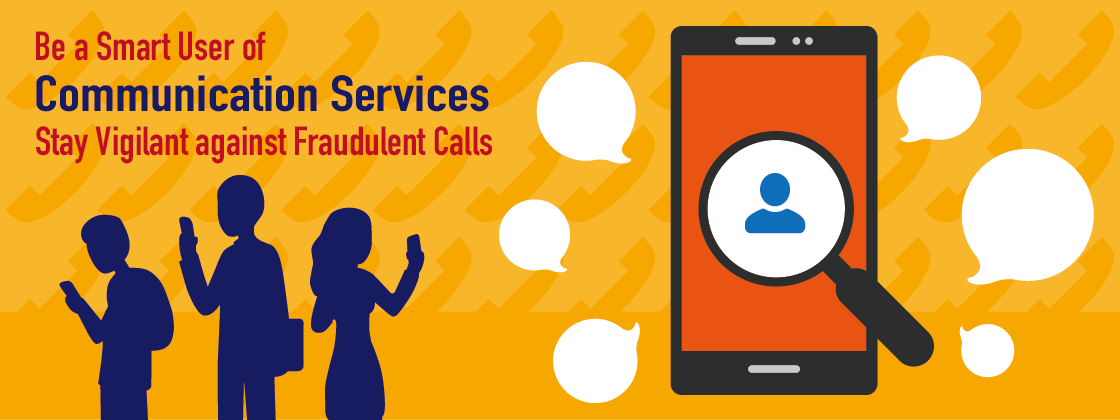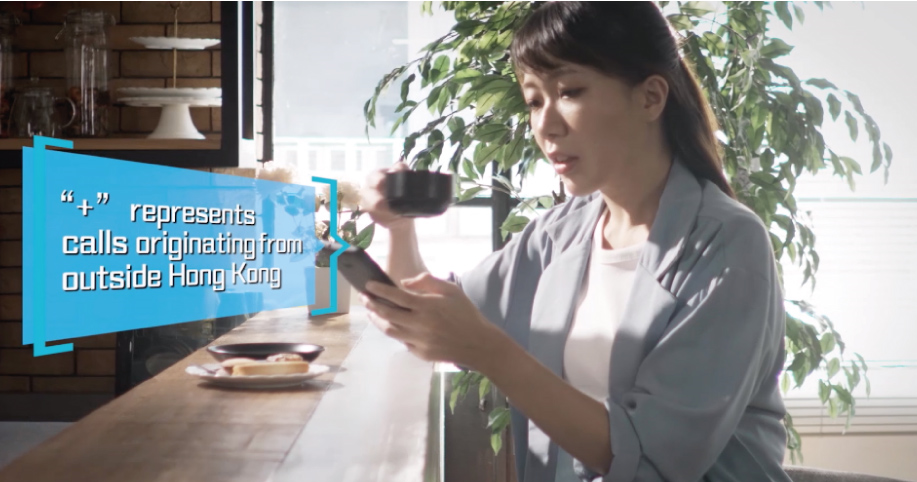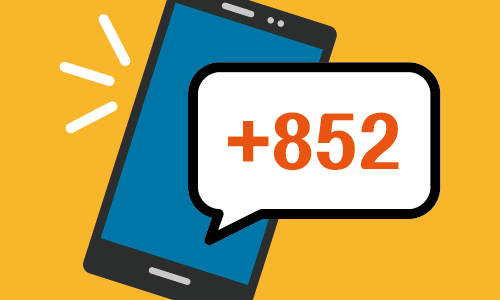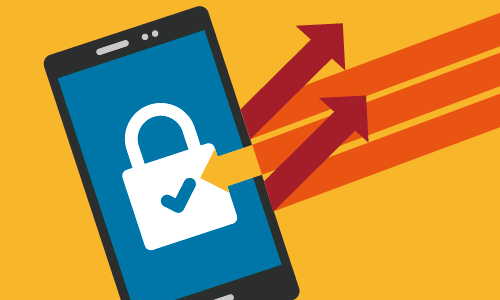

According to Police's information, there are three major modi operandi of fraudulent calls:
| (1) "Detained Son" | : | the fraudster would falsely claim that a relative or friend of the victim has been detained and demand a ransom for release of his/her relative or friend; |
| (2) "Guess Who" | : | the fraudster would falsely claim to be a relative or friend of the victim, inducing him/her to believe in the alleged identity of the fraudster for further deception; and |
| (3) "Pretend Officials" | : | the fraudster would play a voice recording purporting to be from the staff of Government departments/authorities, logistics companies or other public or private organisations, alleging that the victim or the service used by him/her has been involved in criminal cases, and getting his/her trust and personal information through deceit to commit further deception. |
Moreover, in order to reduce the alertness of the victim so as to gain his/her trust, a fraudster may make use of caller identity spoofing to change or falsify the caller identity, pretending that the call is made from a local phone number (e.g. using telephone number of a hotline centre prefixed with Hong Kong area code "852") and tricking the victim into believing that the call is made from an official authority.
|
Insertion of "+" sign in the calling number display to help identify telephone calls originated from outside Hong Kong  According to the Police, phone scams involving caller identify spoofing originate from outside Hong Kong. To help members of the public identify the origin of suspicious incoming external calls, OFCA has since August 2015 required telecommunications operators to insert a "+" sign in the calling number display of mobile phones for all incoming calls originating from outside Hong Kong. Members of the public are advised to stay vigilant and be prudent upon receipt of calls from numbers prefixed with a "+" sign (e.g. "+852") for possible spoofed caller identity. For more information about the abovementioned measure, please visit the following webpage: |
|
Alerts for suspicious calls originated from outside Hong Kong  To raise public awareness of suspicious calls originating from outside Hong Kong, from 1 May 2023, all mobile service providers are sending voice alert or text alert, for incoming calls with caller number prefixed with "+852" to alert mobile services users that the calls are from outside Hong Kong. The alert message is standardised as "Call is from outside Hong Kong. Beware of deception". Users are advised to pay more attention to these alerts in considering whether or not to answer such calls. |
|
Incoming call filtering service provided by mobile service providers  Some mobile service providers also offer call filtering value-added services (VAS) (some of the VAS may have associated mobile apps to assist users' management and configuration of the VAS; users may be required to view advertisements or pay additional charge to use the apps/VAS). Users subscribing to these VAS may be able to personalise their own black and/or white lists or use the pre-set lists provided by the mobile service providers for filtering all of their incoming calls, including anonymous calls, to minimise suspicious and nuisance calls. For more information about the mobile apps and VAS, please visit the following websites or contact the relevant mobile service providers: |
| Mobile Service Providers | Mobile Apps / VAS | Website |
| China Mobile Hong Kong Company Limited | Whoscall Premium | https://www.hk.chinamobile.com/en/home/vas/detail?commodityId=21202308101689547510188216320&isApplyNow=false |
| CSL Mobile Limited | Call Filtering Service | csl.'s customer: https://www.hkcsl.com/en/call-filtering-service 1010's customer: https://www.1010.com.hk/call_filtering_service |
| Hutchison Telephone Company Limited | Incoming Calls Management Pack (Anti-Scam and Call Block) | https://web.three.com.hk/vas/antiscam/index-en.html |
| SmarTone Communications Limited | Call Guard | https://www.smartone.com/en/value_added_services/cyber-security/call_guard/service.jsp |
Incoming call filtering mobile apps provided by third party software developers
In addition, mobile apps provided by third party software developers are available on the market offering similar call filtering functions (users may be required to view advertisements or pay additional charge to use the apps). These mobile apps would in general help users identify and filter incoming calls based on the databases established by public and/or users' personalised black/white lists.
Users should pay attention whether the mobile apps are reputable and offer the functionality they need before installing these mobile apps.
Some commonly used call-filtering apps available on the market are provided below for reference. For more information about the individual call-filtering apps and to download the apps, please visit the websites of the mobile app developers.
| Mobile App Developers | Mobile Apps | Websites |
|---|---|---|
| Gogolook | Call Defender Whoscall  |
https://www.call-defender.com/ https://whoscall.com/en |
| Techmaxapp | Jima Caller ID |
https://www.techmaxapp.com/ |
For more tips on the smart use of call-filtering apps in smartphones, please click here.
Do not simply rely on the calling number to determine one's identity
With OFCA's coordination, telecommunications operators have enhanced their network management to implement identification and blocking of suspicious calls or suspension of telecommunications services of phone numbers concerned. Nonetheless, the public should not simply rely on the calling number to determine one's identity, and should always stay vigilant to avoid deception.
ADCC

To step up combat actions against deception and increase public awareness of various kinds of scams, the Police has set up ADCC with a view to consolidating all the relevant efforts of the Police in fighting and preventing such crime. ADCC operates an all-day enquiry hotline "Anti-Scam Helpline 18222" to provide immediate consultation for the general public in order to handle suspicious deception cases in a more effective manner. ADCC has also launched a subscription service viz. "Scam Alert Subscription" on its website to enable the public to receive new scam alerts by email, with a view to enhancing the public's anti-deception awareness. For more information about ADCC, please visit the following webpage:
https://www.adcc.gov.hk/en-hk/home.html
Scameter

The Police has launched a one-stop search engine called "Scameter" to help the public identify frauds and online pitfalls. When the public encounters suspicious calls, online sellers, friend requests, job advertisements, investment websites, and the like, they can enter the account name or number, payment account, phone number, email address, URL, etc. of the relevant platforms to assess the risk of fraud and cyber security. Based on the information provided to the "Scameter", the search results will be indicated in different colours. Red represents "High risk". Orange represents "Possible risk". Yellow represents "Potential risk". Purple means "No record". For more information about "Scameter", please visit the following webpage:
https://cyberdefender.hk/en-us/scameter/
Reminder to members of the public on suspected fraudulent phone calls and scam emails purporting to be made or sent by the Communications Authority (CA) or OFCA
Furthermore, from time to time, OFCA receives reports from members of the public on various kinds of suspected fraudulent calls purporting to be made by the CA or OFCA. There are also reports of scam emails pretending to be sent by OFCA, inviting recipients to provide quotations for different kinds of goods/services.
We wish to stress that the CA and OFCA have never made/sent and will not make/send such calls/emails. For more information, please visit the following webpage:
https://www.ofca.gov.hk/en/consumer_focus/alerts/reminder_to_members_of_the_public_on_suspected_fra/index.html。
In sum, members of the public should always stay vigilant when using communications services. Under no circumstances should personal information be disclosed to unidentified callers. If in doubt, hang up the phone immediately and report to the Police.